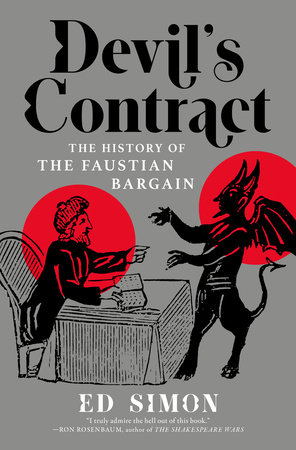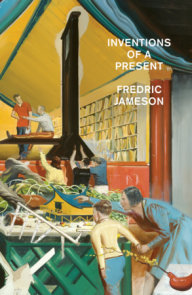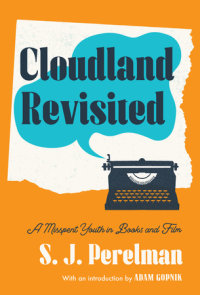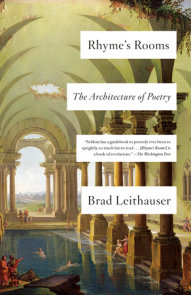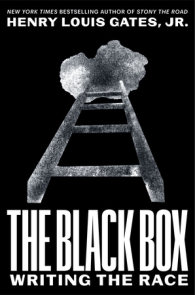TEACHING GUIDE
DISCUSSION AND WRITING
Questions
From Christopher Marlowe’s play to Goethe’s poem, the story of bluesman Robert Johnson to the Charlie Daniels’ Bands “The Devil Went Down to Georgia,” our culture has been fascinated by stories of people who have sold their soul to Satan. What’s your personal favorite story in this vein?
Early on in Devil’s Contract, Ed Simon argues that stories about somebody selling their soul to Satan for power and knowledge are among the most influential and significant that have ever been told. Do you think that the Faustian legend is our culture’s most central legend? What legends could compete with it?
Throughout Devil’s Contract there are certain themes which re-occur, particularly the claim that art, music, and theater, in their reliance upon illusion, have something that’s particularly “Faustian” about them. Do you think that this is true? What are some examples of artists or creative acts that are Faustian?
Several times throughout the book Simon argues that the legend of Faust, and indeed religious stories in general, have crucial things to teach us even if we’re not personally religious. Do you think that this is true?
Much of Devil’s Contract concerns the similarities between various Faustian legends, the common details of their being a signed contract, or of the person who sold their soul acquiring magical abilities. What are some important differences that you see between various examples of the Faustian legend?
In one chapter, Simon argues that certain things are particularly “Faustian,” e.g., that America’s national history is Faustian or that totalitarian politics is Faustian. Do you think that this is a useful adjective to apply to those words, and if so, what are some other things in literature, philosophy, history, or culture that could be described as “Faustian?”
At points Simon seems to argue that we should have sympathy for the broad archetype of Faust. How sympathetic to him are you?
Among the most novel of arguments made in Devil’s Contract is Simon’s claim that ours is a particularly Faustian age, in fact that we could call it the “Faustocene.” What aspects of the modern world do you think could be fairly described this way?
Devil’s Contract discusses aspects of the modern world which Simon terms apocalyptic—things like climate change, technological overreach, and nuclear proliferation—which he also thinks are “Faustian.” Is there a way in which the warnings of the Faust legend can help us better understand those issues?
In the introduction, Simon claims that all of us are in some sense “Faustian,” that in a very real way that to read about the legend is to consider your own biography. Do you think it’s fair or true to say that to some degree Faust’s story is all of our story?
×
Become a Member
Just for joining you’ll get personalized recommendations on your dashboard daily and features only for members.
Find Out More Join Now Sign In








